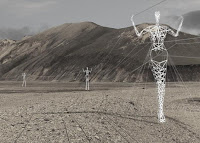Back in Black: Fossil Fuels the Energy Carriers of the Future?

-- a _kt75 | reprint supporting information: [ 1 ], [ 2 ], [ 3 ], [ 4 ], [ 5 ] Tweet The global energy map is changing, with potentially far-reaching consequences for energy markets and trade. It is being redrawn by the resurgence in oil and gas production in the United States and could be further reshaped by a retreat from nuclear power in some countries, continued rapid growth in the use of wind and solar technologies and by the global spread of unconventional gas production. Perspectives for international oil markets hinge on Iraq’s success in revitalising its oil sector. If new policy initiatives are broadened and implemented in a concerted effort to improve global energy efficiency, this could likewise be a game-changer. On the basis of global scenarios and multiple case studies, this World Energy Outlook assesses how these new developments might affect global energy and climate trends over the coming decades. It examines their impact on the critical c...

